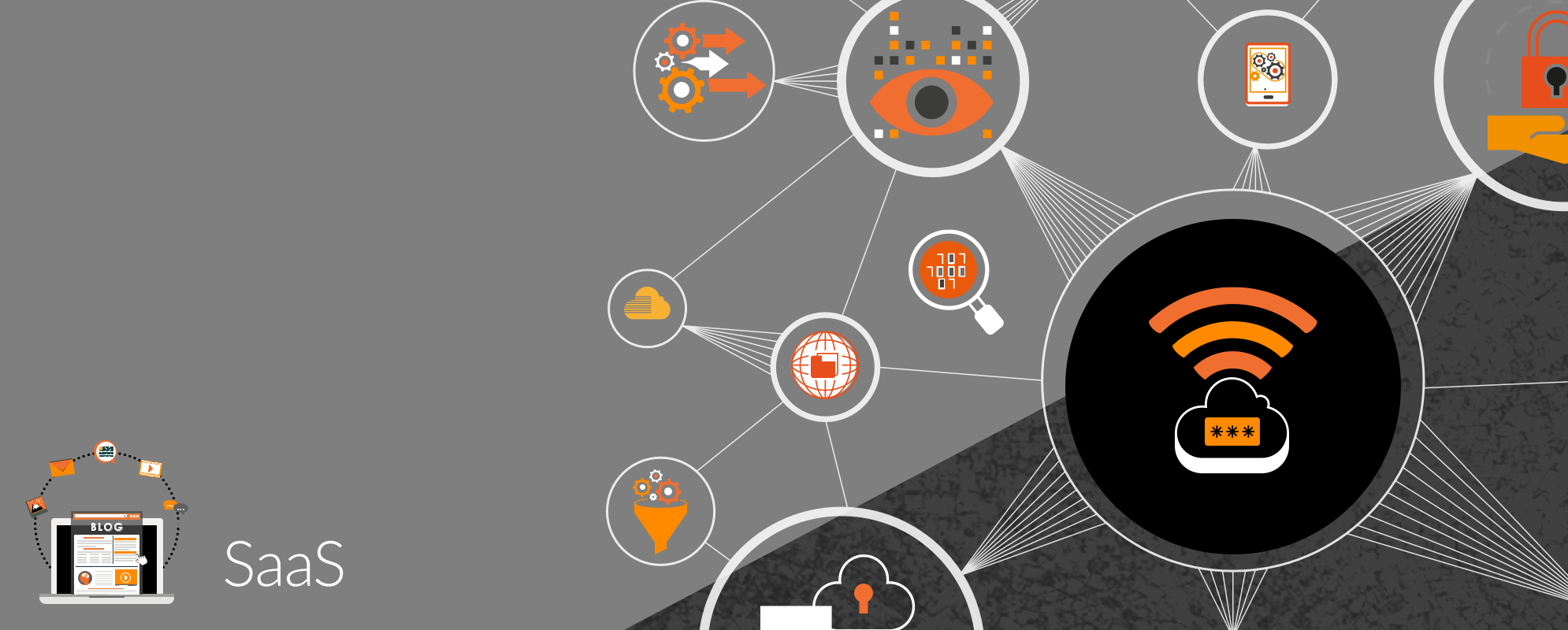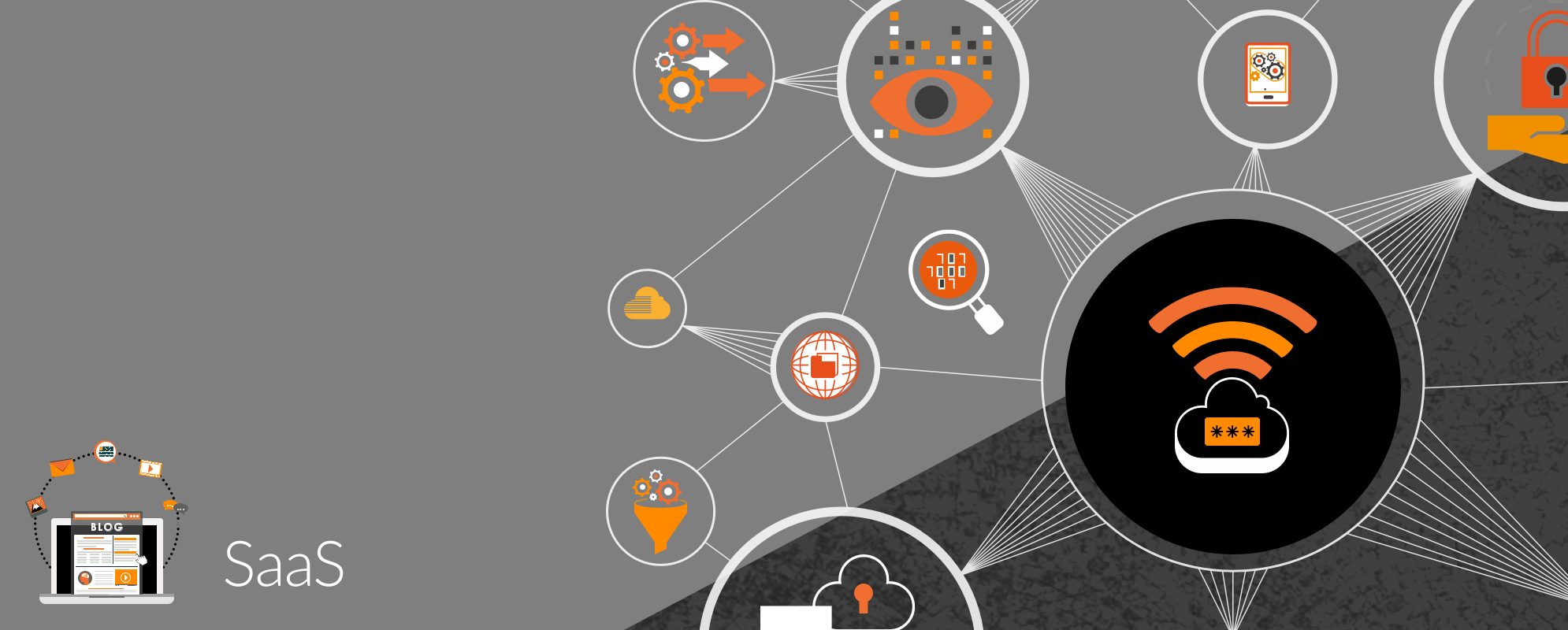Get weekly
HubSpot updates
Marketing is marketing, right? You have a product; you have a target market. Marketing helps you move that product from seller to buyer, no?
Well, yes.
But what happens when you have an intangible product that’s likely to be quite technical in nature, that is continuously evolving and upgrading and therefore often requires a subscription-based pricing model?
Oh, and you’re probably pitching this product to end-users who then have to convince other key stakeholders to approve the purchase. The formula for marketing such a peculiar thing becomes a little… complex.
So let’s answer the question...
What is SaaS Marketing?
SaaS marketing is the process of selling software services in a B2B or B2C (or both) context, usually online, using digital tools to demonstrate the value and features your product has to offer.
More than 4 billion people use the internet, and with instant payment facilities, fast download speeds and a million ways for your customers to make an educated purchasing decision, software-as-a-service marketing becomes all about the service, content and support you are able to provide your customers. It's a highly competitive market and one that can easily drown out a business that lacks strategy in its approach.
Why is SaaS marketing different?
When a customer makes a physical purchase, there is a psychological implication in the transaction. Money has been handed over (or plastic has been tapped), and there is something to take home and show for your expenditure. It takes up physical space, and whether it's a happy or regretful purchase, that customer has something tangible to show for their spend. Software, however, can be misconstrued as a little illusory.
Take MailChimp, for example. If you're an entrepreneur looking to grow his or her mailing list – because that's what all the marketing blogs say you should do – you will begin to investigate how you go about this. So you come across MailChimp. You're not a tech guru; you're just a dude (or dudette) with a great product and very little interest or time in navigating the treacherous seas of marketing automation tools.
MailChimp makes it as easy as possible for a solopreneur to grasp the ins and outs of its product, as it would for a corporate marketing manager.
How does MailChimp achieve this? Through content.
The home page immediately guides the customer to the core benefits and features of the software. The easy-to-spot menu offers everything you may need to learn about the product, such as pricing, features, and a plethora of resources that help the website visitor to grasp the mechanics of MailChimp and how to get the most out of it.
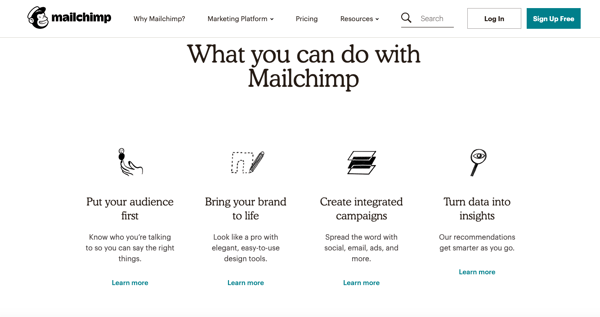
In contrast, selling a product may not require as much effort in building educational content, videos and tutorials. Everything about MailChimp's website aims to unpack the benefits of the product and helps the potential customer visualise the results they can expect.
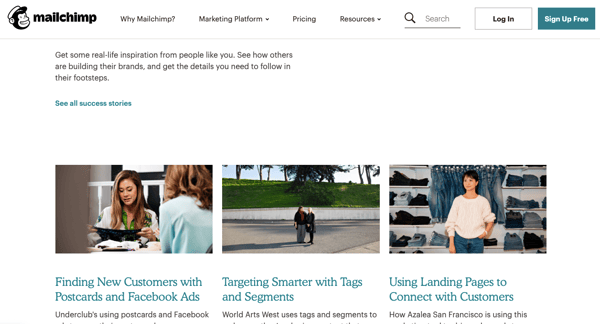
Testimonials play a huge role in helping to inspire and encourage potential customers to envision how the software will improve their lives.
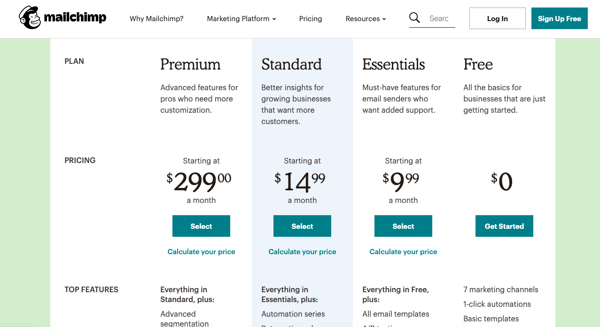
Furthermore, unlike a standard product, MailChimp (like many other SaaS businesses) has a tiered pricing system. This makes the product appealing to businesses of all sizes and shows the company's understanding of the needs of scaling businesses. Software is often flexible, adaptable and continuously evolving to accommodate technological improvements. So effectively, you are marketing something that has no fixed framework other than the branding and customer service you display.
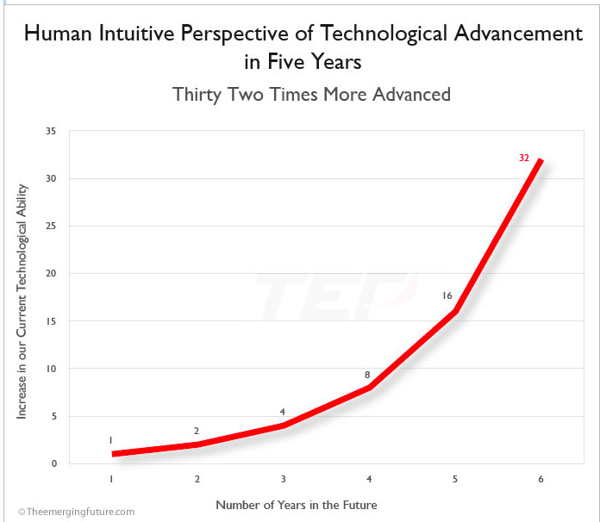
“Every twelve to eighteen months, computers double their capabilities, and so do the information technologies that use them.” – The Emerging Future
The complexity of SaaS buyer personas
Understanding your buyer persona becomes more crucial than ever, because you may have more than one. In a B2B scenario, your end-user may be someone entirely different from the person who makes the ultimate purchasing decision. So your marketing has to include content and language that conveys the benefits of your product to someone who is looking at it from an ROI perspective; but, you must also clearly demonstrate the technical features that end-users will be looking for.
With a growing tech industry, it's unsurprising that more and more marketing management roles will centre around the selling of SaaS products. If you find yourself at the beginning of your SaaS marketing journey and would like the support and assistance of a marketing agency that specialises in SaaS, why not give SpotDev a call? It's always a good idea to have an experienced partner when trying to grow a SaaS business, and we're certainly up for the job.
